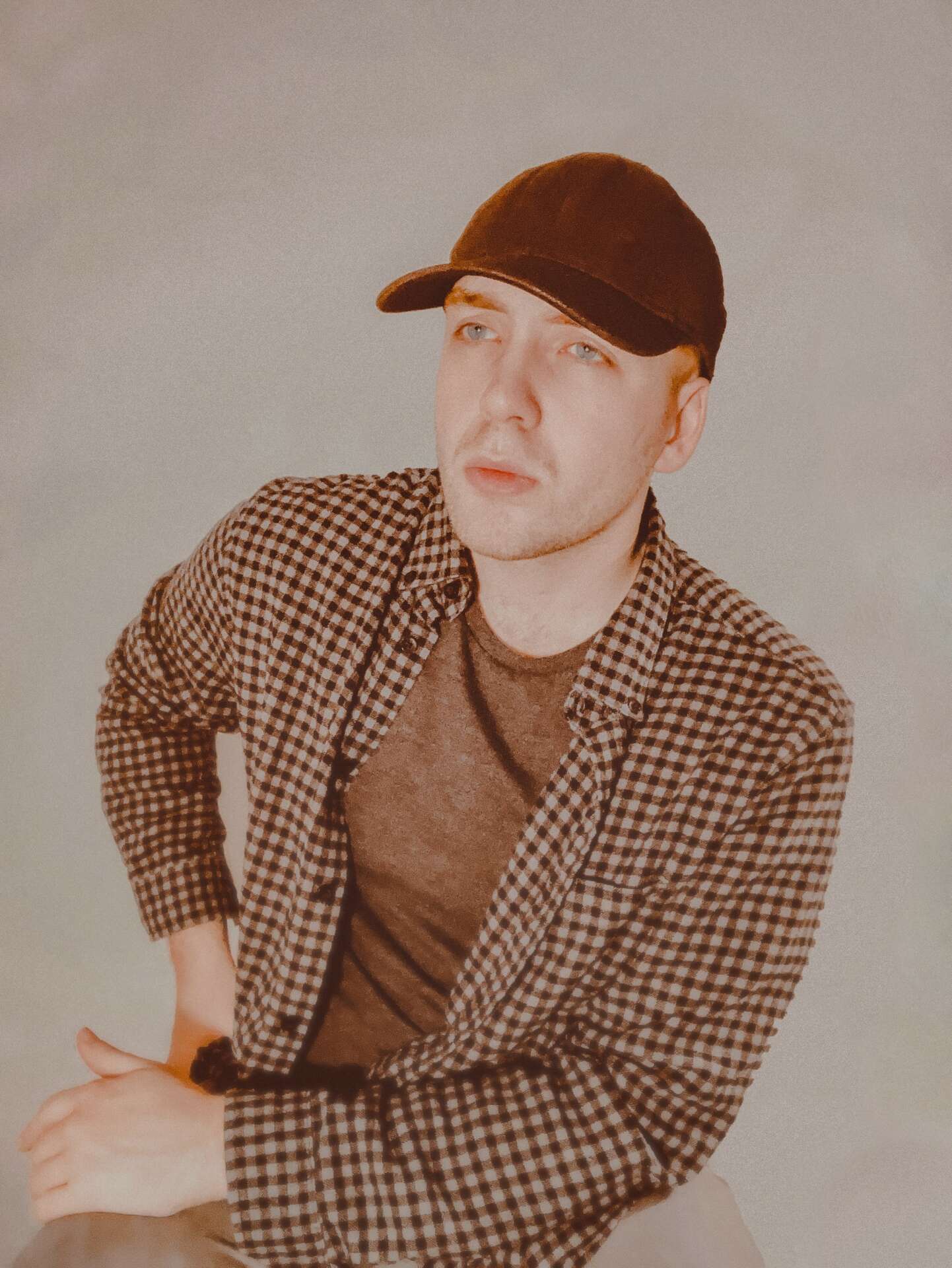We caught up with the brilliant and insightful Foster Meeks a few weeks ago and have shared our conversation below.
Foster, looking forward to hearing all of your stories today. We’d love to hear the backstory behind a risk you’ve taken – whether big or small, walk us through what it was like and how it ultimately turned out.
The greatest risk I’ve ever taken was turning off the part of my brain that was constantly concerned about how every potential listener would be consuming the music I make. Prior to the work I’m doing now, I had relative success in older releases that varied wildly, stylistically, from where I’m at today. However, I really felt like I was “playing to the algorithm” and half the time, I didn’t even care too much for what I was putting out. It seems that in recent years, there’s been a shift in the landscape where there is a legitimate outcry for more genuine authenticity in the creative realm. More and more particular niches are sprouting up that want something raw and soulful. That’s what I’m all about now. I took two years off of releasing music, and essentially had an existential audit. I painstakingly scraped away all of the surface level concerns and focused myself on finding what being true to myself looked like. I grew up on blues and soul music, and for years told myself that it was fruitless in trying to pursue playing that sort of music because the days of that being “mainstream” are long gone. In recent years however, with people having more and more power over what they choose to listen to, there is a pocket niche for everything to thrive now. It’s just about meeting them where they live. It hasn’t been without struggles, and there are many more to come… particularly in blues music, where a significant portion of the audience are generally so concerned with preserving the style, that they would sooner die than see it change at all. This is particularly humorous as this same story has already played out a number of times over the decades in blues, and the blues has changed so many times already, but I digress. That is where my niche is now. That’s what I’m about. I’m playing for what I want to hear. Super raw, in-touch-with-the-feeling, sort of vibes. I know that there are people who crave that same authenticity as me, and I’ve started finding them, in the pockets of rooms where no one else is listening. The connections take time, like building a relationship. But those that I’ve found that feel it, in what I do… they seem to *really* get it. That’s a wonderful feeling.
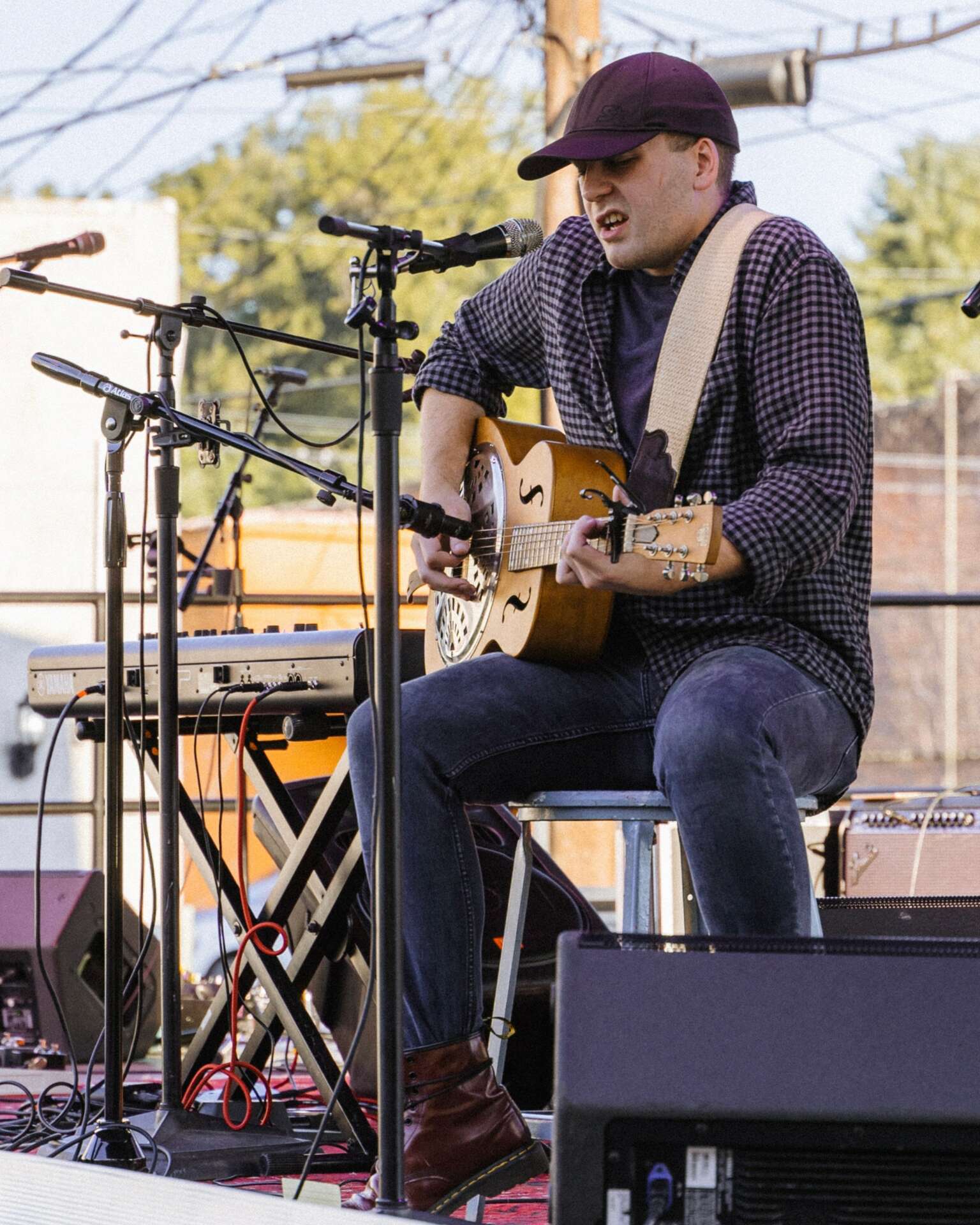
Foster, love having you share your insights with us. Before we ask you more questions, maybe you can take a moment to introduce yourself to our readers who might have missed our earlier conversations?
When I was 12 years old, my father took me to a Buddy Guy concert. For the uninitiated, Buddy Guy is one of the OG Blues guys from out of Chicago. I went in blind, and was unknowingly about to be given a crash-course in authenticity. I knew immediately that this feeling was something I wanted a piece of. I also knew, however, (with what gut intuition I could have at 12 years of age) that real honesty in music like this, that authenticity, was something that would take many years to reach.
Now 24, I’ve spent just over half of my life endeavoring to find that core experience. Though exposed to that central feeling via blues, it isn’t exclusive to one artistic medium. That bottom line is what everything in life seems to be about; that authenticity to the collective experience. In everything from relationships with yourself and others and especially to any meaningful artistic expression, doing the mental work to find what’s true to yourself is paramount. Circling back to the music specifically, that is what spoke to me so much in Blues. If you find the good stuff, it speaks to the core of oneself. There’s just a truth to it that can eviscerate you if you allow yourself to be open to it. It can put a mirror to your face to show you things that you didn’t know you had buried within you.
Now don’t get me wrong, I’m certainly not speaking exclusively to the shallow, worn-down “Woke up this morning, my baby did me wrong” sort of stuff. That’s all well and good, but it can go way deeper than that. Blues music has gotten something of a stigma in some circles, being perceived as a caricature of itself. This is unfortunately not altogether unearned.
There is a crisis of authenticity in this art form of the Blues. In their feverish zeal to reclaim the former glory of mainstream popularity of the style, many musicians within these circles would sooner regurgitate watered-down imitations of long dead blues artists, than dare to look at themselves for a few moments to create something truly honest.
That is what Foster Meeks is all about. I’m making this music in a style that remains so important to me, and satisfying my own craving to hear something truly authentic in this millennium. The Blues, in many ways, has lost its guts, and it’s sickening to hear. I know there are others that feel the same. These are my people.
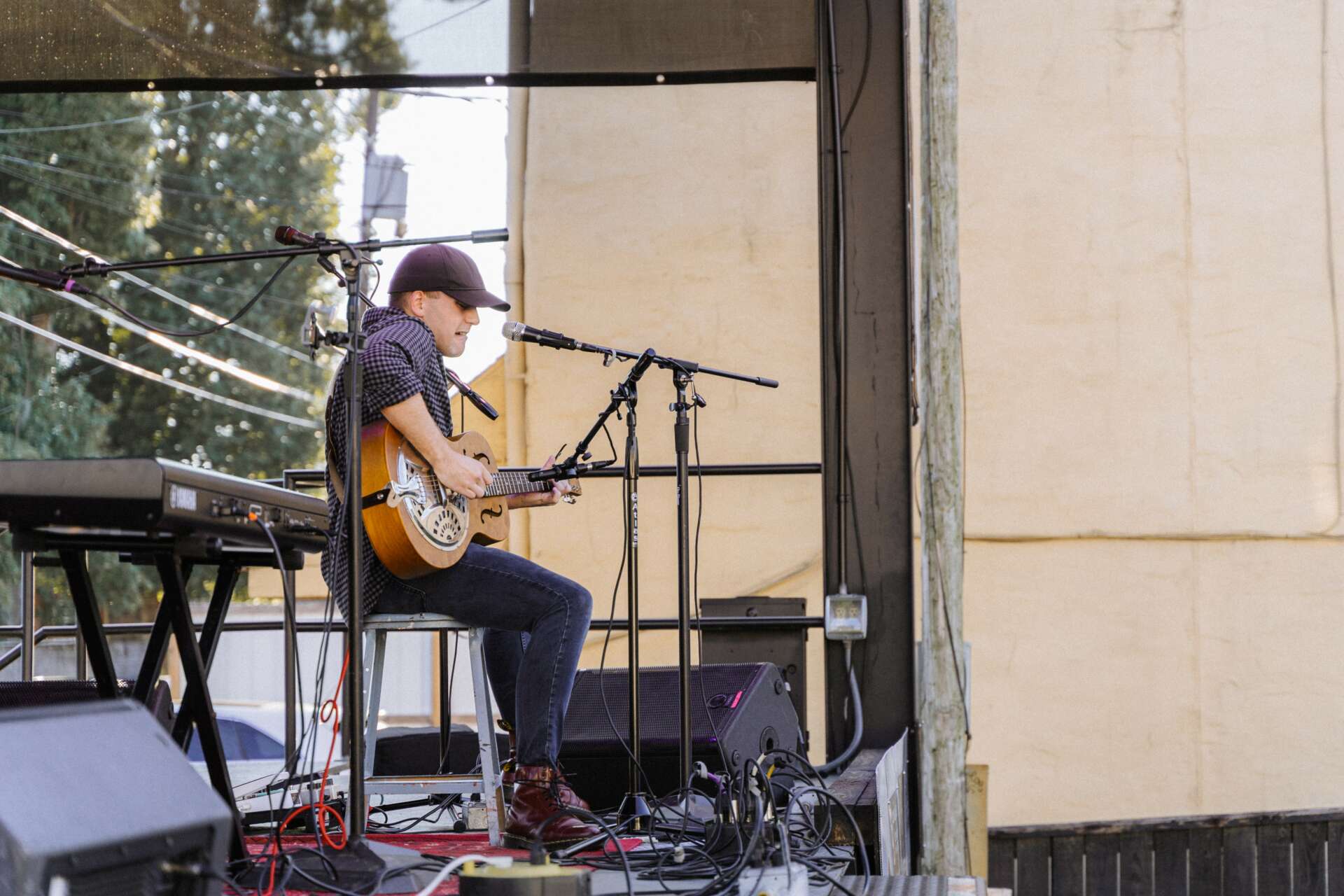
Learning and unlearning are both critical parts of growth – can you share a story of a time when you had to unlearn a lesson?
The biggest lesson I’ve had to unlearn ties pretty directly into what we just addressed. For many years, I bought heavily into the idea of “We must keep the Blues alive.” An honorable goal at face value, and one that comes from an admirable place. It makes perfect sense to have feelings of anxiety and distress to witness an art form, which you love so dearly, fall from mainstream prominence over the decades. The rub is, whether it’s on top of the mountain or down in the weeds, the Blues will be just fine.
As I mentioned before, the Blues can speak to the very core of oneself. It’s a collective experience, born of sorrow or pain, that can be transformed to either reflect or deflect that darkness. It is something that everyone experiences in one way or another. I’ve often said that whether or not you’ve ever listened to, or cared for the style of the blues, if you are out and hear someone playing that music and they’re really on it, you can feel it. It can hit you in your soul, and you will just vibe with it.
The biggest problem of a dogmatic chant like “Keep it alive. Keep it alive.” (I picture thundering footfalls and pitchforks), is that excuses start to be made for what would otherwise be considered a shallow out-of-touch display. The most important facet of the Blues, is once more, the raw and unadulterated honesty which is the heartbeat of this music. If that is allowed to be compromised for any reason, then the whole infrastructure is at risk of crumbling. A stylistic comparison I often make is this: If you’ve ever been in a church, you know how, often, you’ll hear that one person that is viciously tone-deaf just hollering along with the music? Nobody says anything because, in that context, caterwauling is completely permissible because it is done in tribute to whatever respective religious entity they may be going after. I fail to see how and why this same line of thought has been carried over to the Blues.
Truly, and I say this as someone who loves this music with everything in me, the general impression I get from those outside of the genre, if they are at all even aware of the music, is one of dismissal and indifference. Undoubtedly, this is a result of a grand majority of the practitioners displaying a blatant disregard of any personal introspection within the music. And why not? Especially when it’s much easier to cosplay as a cartoonish “Blues Brothers” fever dream and be applauded all the same from within the borders of the genre. Look here everyone! John Belushi is back from the dead and he’s here to hurt your ears. It is paramount that blues musicians and fans rejuvenate an emphasis on what makes the blues noteworthy at all; the feeling. Being true to oneself, and doing the personal work. If one tunes themselves to their own frequencies, it reflects in everything, not least of which the music.
My biggest lesson to unlearn? The Blues is not truly dying. It may be sleeping, yes. But the only way for the Blues to truly die, is if Blues musicians continue to kill it.
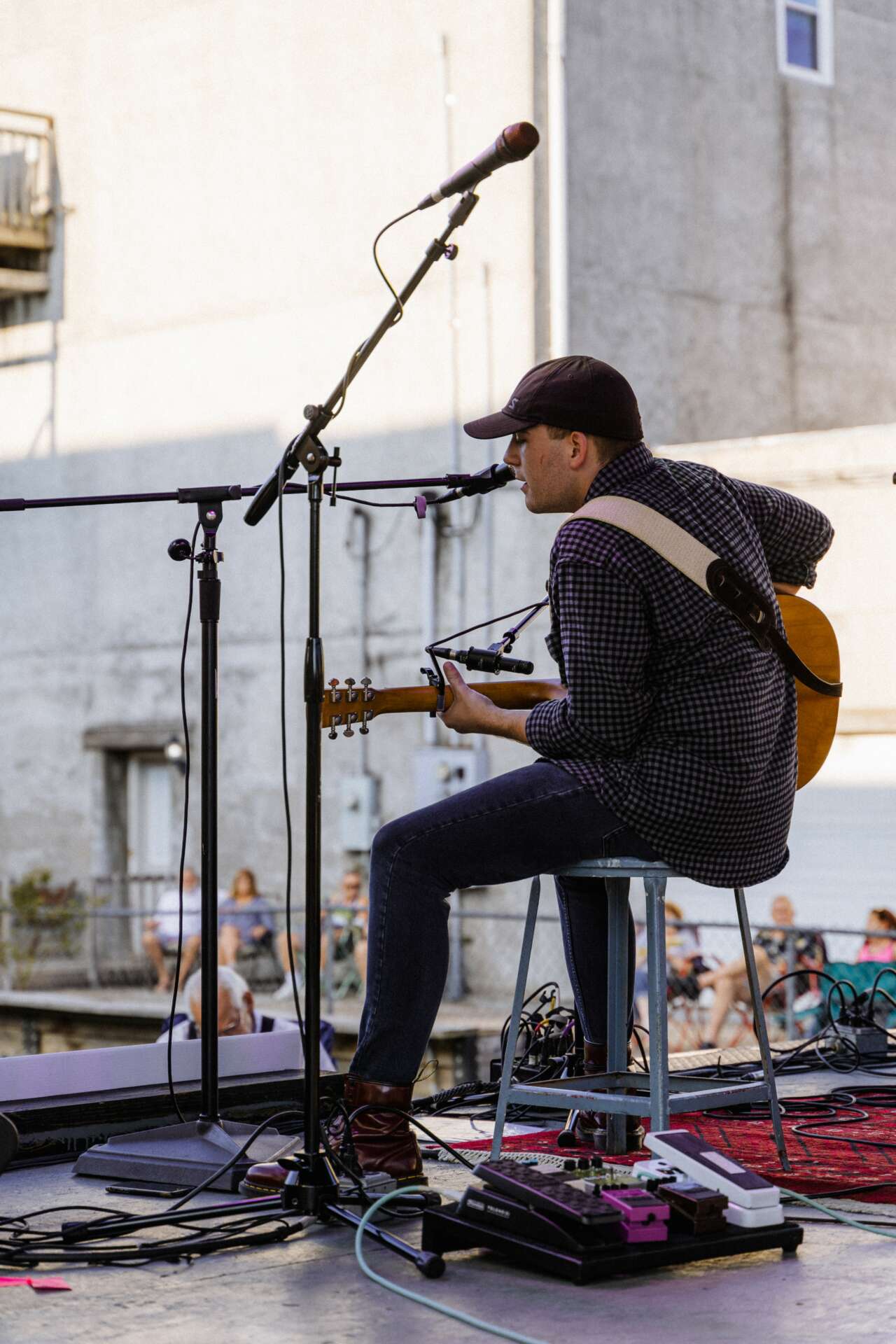
What do you think is the goal or mission that drives your creative journey?
My main mission is just to keep it real with myself. Saying it out loud, it sounds super hippie-ish, but still it stands. Like I’d mentioned before, I think that’s most important in what I’m trying to do. If staying true to myself wasn’t one of my top goals, I’d be doing the whole thing wrong. Now, practically, don’t get me wrong. I very much am striving for a modicum of success, but nothing extreme. I feel that I can be realistic to a fault, but I don’t have stars in my eyes. If I could reach a level of moderate sustainability within my niche, I believe I’d be more than content in that pocket.
I’m passionate about “the craft” and I just want to see it exist in a state where it can be the best it can be.
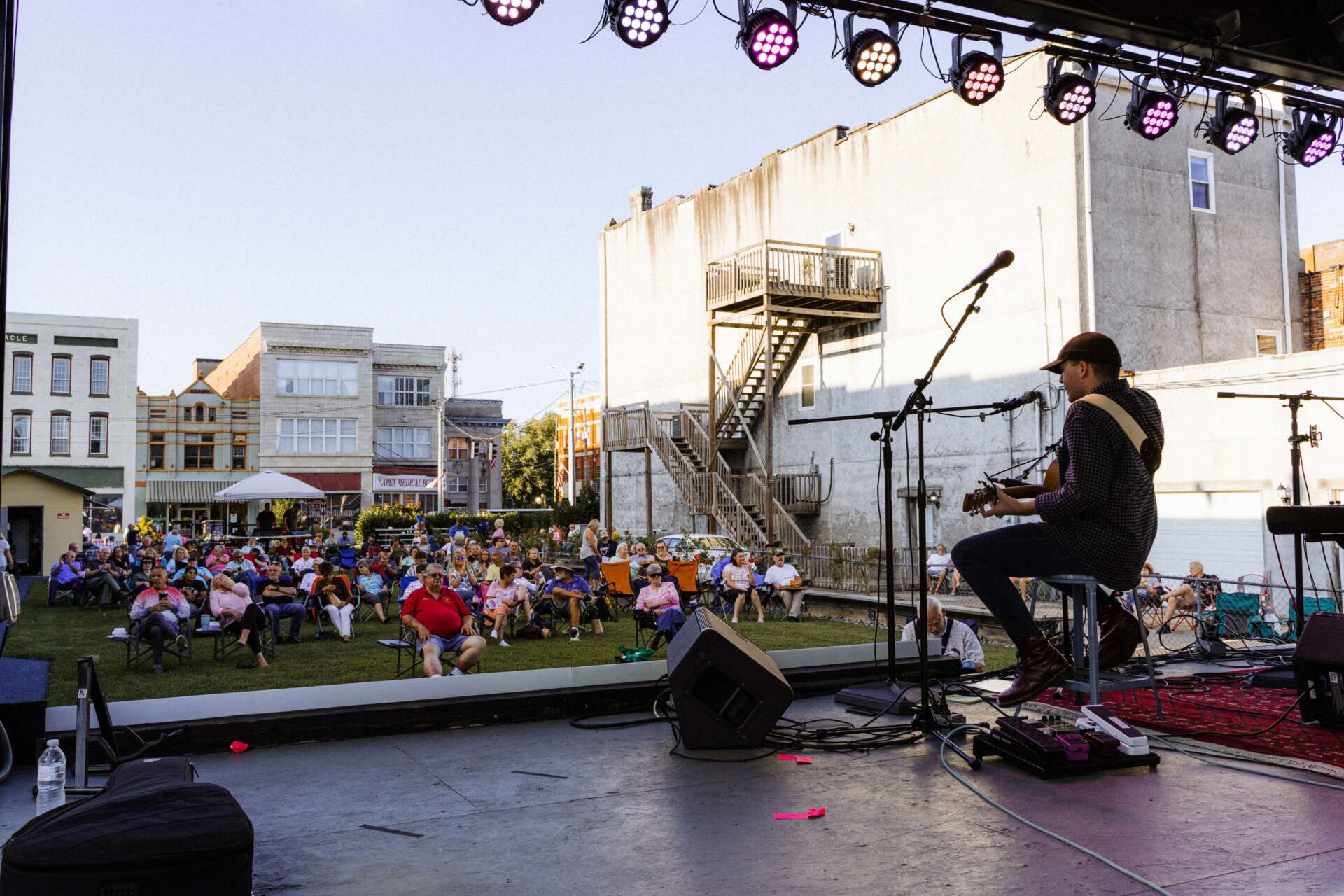
Contact Info:
- Instagram: https://www.instagram.com/thefostermeeks/
- Facebook: https://www.facebook.com/fostermeeks/
- Youtube: https://www.youtube.com/channel/UCqLI0Fzwk9zsHW9UB3WaFgQ
- Spotify: https://open.spotify.com/artist/0VZDJW2W9rptEMRGBFWHjJ?si=oye_wO2KTqyfB6icIY92pQ
- Apple Music: https://music.apple.com/us/artist/foster-meeks/1664639386
Image Credits
Foster Meeks, Derek Beistad


